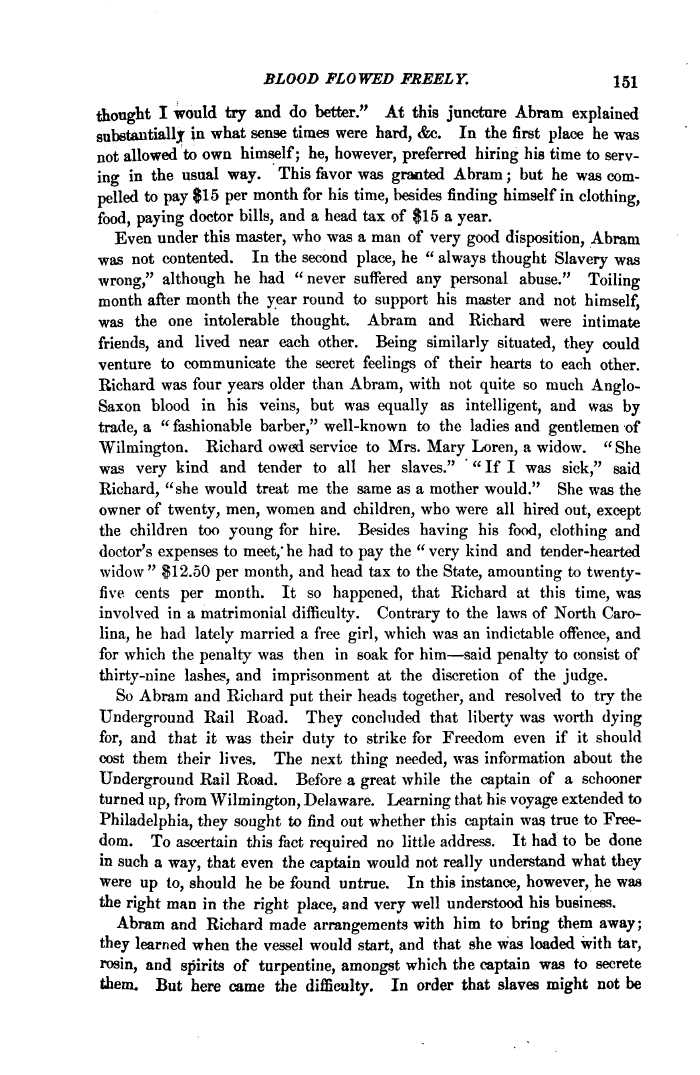 |
||||
 |
||||
| BLOOD FLO WED FREEL Y. 151 thought I would try and do better." At this juncture Abram explained substantially in what sense times were hard, &c. In the first place he was not allowed to own himself; he, however, preferred hiring his time to serving in the usual way. This favor was granted Abram; but he was compelled to pay $15 per month for his time, besides finding himself in clothing, food, paying doctor bills, and a head tax of $15 a year. Even under this master, who was a man of very good disposition, Abram was not contented. In the second place, he " always thought Slavery was wrong," although he had "never suffered any personal abuse." Toiling month after month the year round to support his master and not himself was the one intolerable thought. Abram and Richard were intimate friends, and lived near each other. Being similarly situated, they could venture to communicate the secret feelings of their hearts to each other. Richard was four years older than Abram, with not quite so much Anglo-Saxon blood in his veins, but was equally as intelligent, and was by trade, a " fashionable barber," well-known to the ladies and gentlemen of Wilmington. Richard owed service to Mrs. Mary Loren, a widow. " She was very kind and tender to all her slaves." " If I was sick," said Richard, "she would treat me the same as a mother would." She was the owner of twenty, men, women and children, who were all hired out, except the children too young for hire. Besides having his food, clothing and doctor's expenses to meet/ he had to pay the " very kind and tender-hearted widow" $12.50 per month, and head tax to the State, amounting to twenty-five cents per month. It so happened, that Richard at this time, was involved in a matrimonial difficulty. Contrary to the laws of North Carolina, he had lately married a free girl, which was an indictable offence, and for which the penalty was then in soak for him—said penalty to consist of thirty-nine lashes, and imprisonment at the discretion of the judge. So Abram and Richard put their heads together, and resolved to try the Underground Rail Road, They concluded that liberty was worth dying for, and that it was their duty to strike for Freedom even if it should cost them their lives. The next thing needed, was information about the Underground Rail Road. Before a great while the captain of a schooner turned up, from Wilmington, Delaware. Learning that his voyage extended to Philadelphia, they sought to find out whether this captain was true to Free-dona. To ascertain this fact required no little address. It had to be done in such a way, that even the captain would not really understand what they were up to, should he be found untrue. In this instance, however, he was the right man in the right place, and very well understood his business. Abram and Richard made arrangements with him to bring them away; they learned when the vessel would start, and that she was loaded with tar, rosin, and spirits of turpentine, amongst which the captain was to secrete them. But here came the difficulty. In order that slaves might not be |